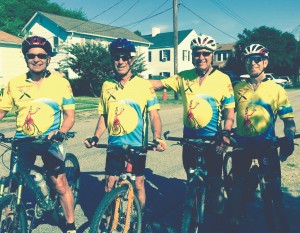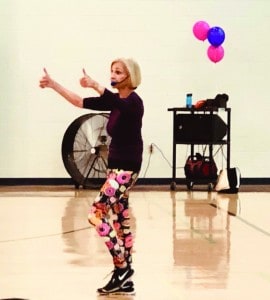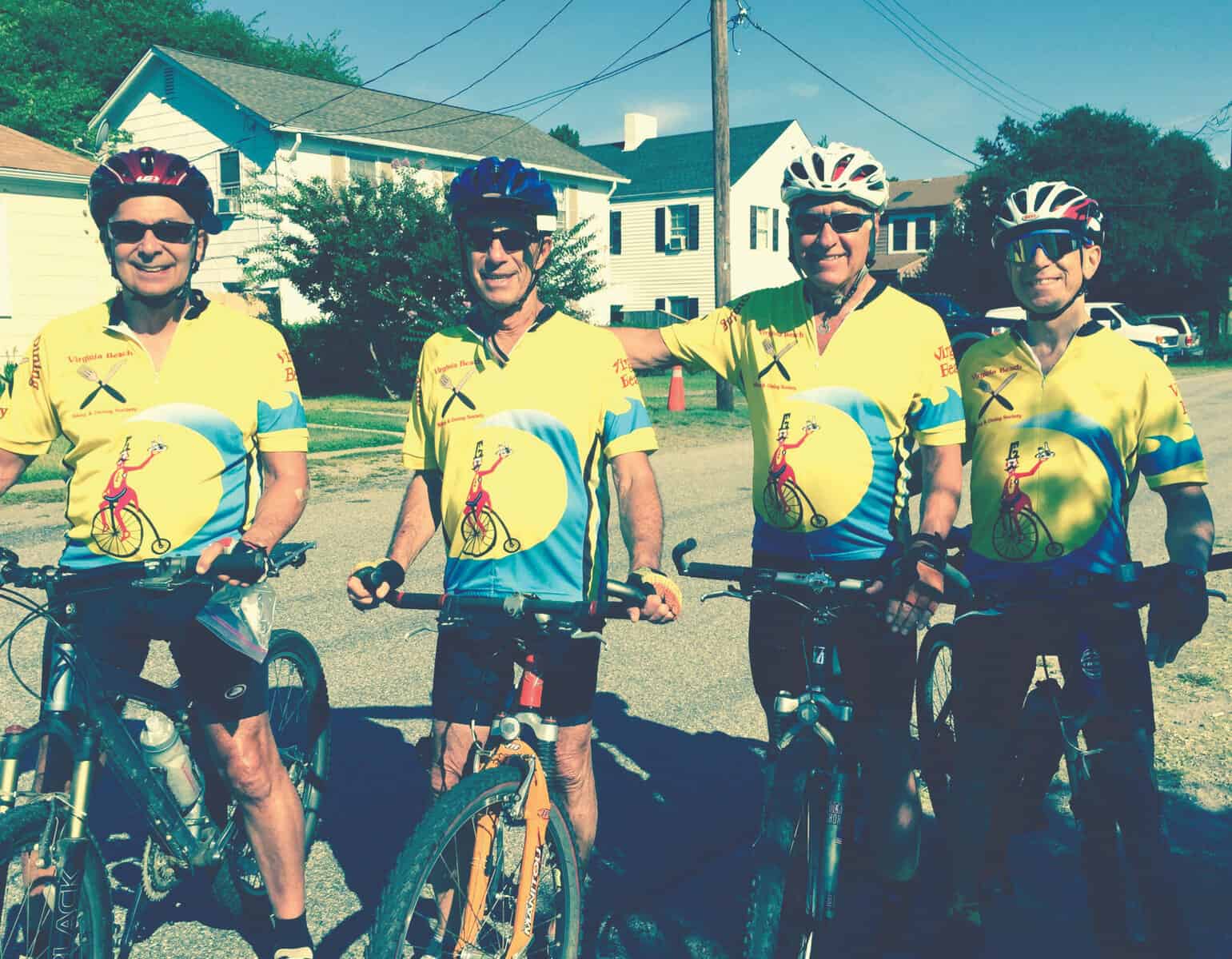 Freedom and fulfillment can be dubious soulmates. Being free doesn’t necessarily mean getting up in the morning with no place to be and no one to answer to. That would be the antithesis of rewarding for certain local seniors who continue to blaze new trails and seek challenges physically, artistically, and altruistically. For these impact-driven elders among us, filling the day without purpose will never quite cut it.
Freedom and fulfillment can be dubious soulmates. Being free doesn’t necessarily mean getting up in the morning with no place to be and no one to answer to. That would be the antithesis of rewarding for certain local seniors who continue to blaze new trails and seek challenges physically, artistically, and altruistically. For these impact-driven elders among us, filling the day without purpose will never quite cut it.
Listen up millennials, Gen X, Gen Y —and younger baby boomers.
Alan Bartel is a 78-year-old retired cardiologist who recently published a book, bikes 120 miles each week, and plays flute with dedicated amateur and professional musicians, including various members of the Virginia Symphony.
In 1973, Bartel and his wife Dolores, (of blessed memory) were warmly welcomed by Tidewater’s Jewish and medical communities. The young cardiac specialist came from Duke University to develop the area’s first cardiovascular program. At the time, there were no young cardiologists, or any type of dedicated cardiac prevention services available. Bartel retired 46 years later satisfied in knowing he built a private practice consisting of 25 cardiologists and helped pioneer the area’s top cardiac program.
Bartel confesses his concern for fellow physicians who do a poor job at retiring. “All they know how to do is work. They are so committed to their medical profession and no other interests are developed. Then they have nothing to do. I hear this a lot. ‘Some day I’ll play golf.’”
The problem with that line of thought, says the flute playing cyclist, is that “you invest in the golf clubs and the golf coach, and then you’re stuck. What if you don’t like the game, or you discover that your personal injury profile isn’t suited for golf.”
When orthopedic issues forced Bartel to give up racquetball, his first love, he knew golf wasn’t a good fit and switched to tennis where he had the same ankle issues. “Racquetball was my passion, but I can still ride a bike. It doesn’t hurt my back or my ankle and it’s challenging. I usually ride 20 miles five or six days a week.”
Bartel puts on his doctor/coach hat for professionals who want to find fulfilling activities with psychosocial and physical benefits, before they retire. His buffer against aging: “Find what you can and can’t do. Figure out where you’re needed. Find a new hobby or start a business. I wanted to write a book about my father, so I did.”
Over the decades, Alan and Dolores Bartel were involved in just about every local Jewish agency. Dolores was committed to people with disabilities and started a program for young adults. She died in May.
“We have two sons who are hearing impaired. At my wife’s shiva, Rabbi Roz was wearing a mask and they couldn’t read her lips,” says Bartel.
Bartel’s buffer needs a buffer. Playing the flute is another deep passion, one that he misses while following CDC guidelines. “I haven’t played with any of my string players or pianists in a while because any one of us could be an asymptomatic carrier. I’m not willing to take the chance of exposure through the flute,” he says. As a member of a Klezmer band, he enjoys playing at Beth Sholom Home and various synagogues such as Ohef Sholom Temple (where he is a member), as well as more secular venues. Bartel is a member of Virginia Arts Festival’s board of directors and over the last several years, he and his fellow musicians have produced an annual musicale for 160 people at the art organization’s building in downtown Norfolk. “This gives me a lot of joy,” says Bartel.
Engaged living is not the same as keeping busy. Staying engaged can be community leadership, creative expression, establishing a new business, or tackling a new physical activity within your limitations.
For Gloria Siegel, it’s all of the above.
 Siegel is known for her boundless energy, personal pizzaz, and long-time sweet spot for Virginia Festival of Jewish Film, where she continues to serve on the screening committee.
Siegel is known for her boundless energy, personal pizzaz, and long-time sweet spot for Virginia Festival of Jewish Film, where she continues to serve on the screening committee.
“My aunt was like a mother to me, and when I had my retail business, and was heavily involved in the Jewish community, she said ‘Gloria you have to slow down and learn to appreciate things more.’ I blew her off. I wasn’t ready to hear it.”
Before COVID-19 did what nobody could convince her to do, Siegel had a full schedule as a senior fitness specialist for the City of Virginia Beach at several local recreation centers teaching multiple fitness classes, up to six days a week.
A swimmer for 30 years, often at the Simon Family JCC, Siegel prepared for her 60th birthday by training for her first triathlon. With the swimming part nailed down, all she had to do was learn the biking and running. “Once you start training for your first, you can’t do just one,” says Siegel. Siegel has completed nine since then, including one with her daughter, a runner. “My daughter ran, I swam and rode. Training for these events is what got me started biking.”
What many don’t know is Siegel’s profound impact on seniors in the local Parkinson’s community. Twelve years ago, Siegel was already well into her second career as a popular senior fitness specialist when her husband, Melvyn was diagnosed with Parkinson’s Disease. “When my husband got the diagnosis, I didn’t know anything about the disease. At the time, there were no national exercise programs available to our community. I started to do my research. Because movement and exercise are essential, I hired a personal trainer and started creating little things to do to help. That’s when people with PD asked me to work with them.”
– Lisa Richmon

